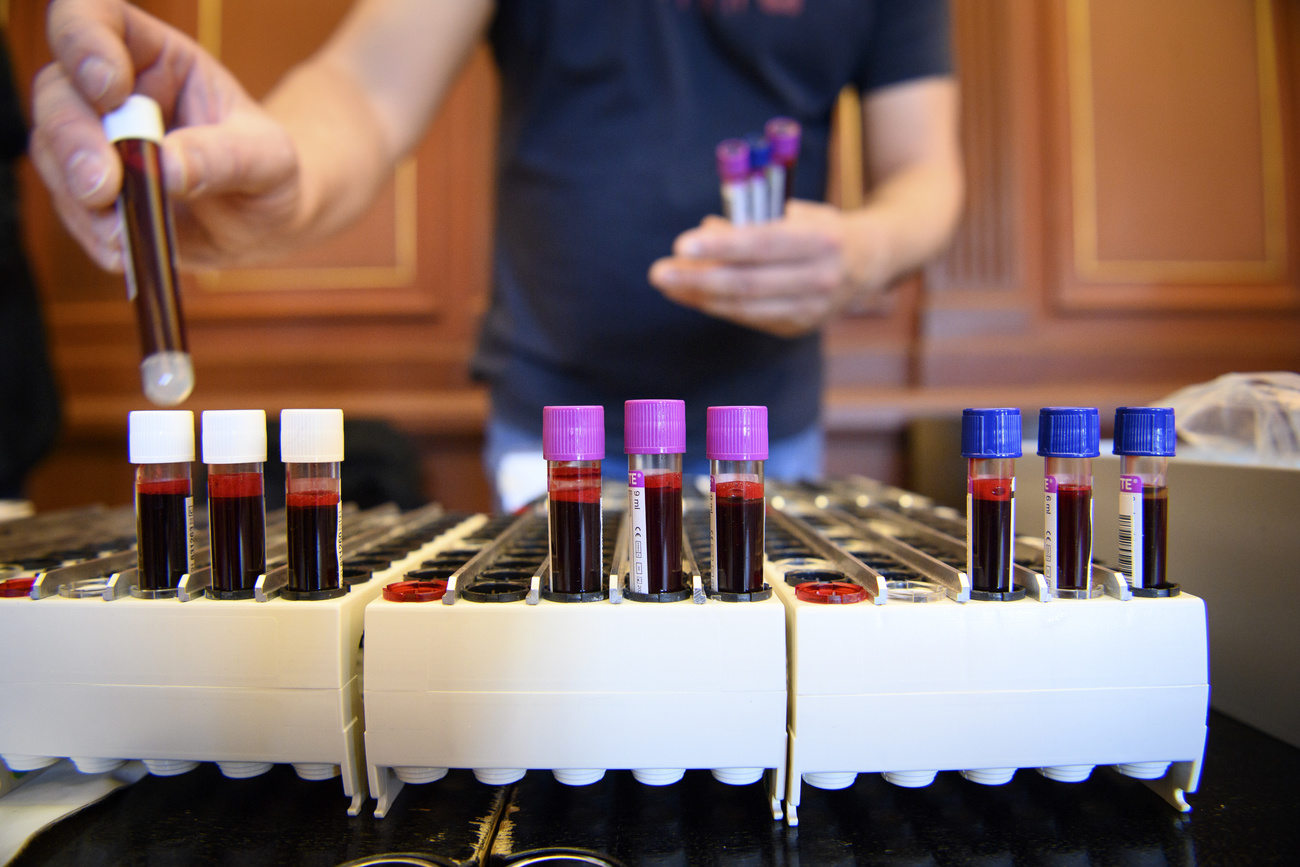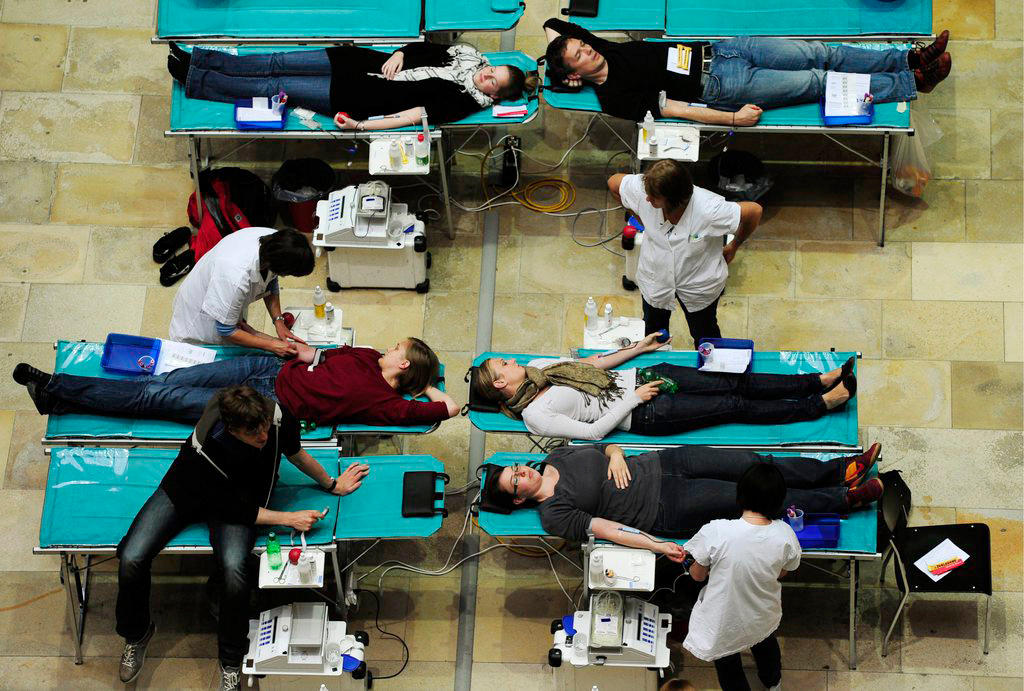
Blood shortage forces Swiss to consider their options

Several European countries have relaxed their blood donation restrictions, but Switzerland still lags behind, reports Swiss public broadcaster, RTS. Change may be ahead, however.
The Covid-19 pandemic has resulted in a blood shortage in many countries, including Switzerland, RTS said on Sunday. Donations have become less frequent and less easy to organise, for example at the workplace, due to working from home, it said. According to the organisation Swiss Transfusion SRCExternal link, which helps secure blood supply in Switzerland, supply levels of blood type O- are currently dangerously lowExternal link.
The University Hospitals of Geneva launched its own donation campaignExternal link in July in an effort to counter the shortage.
But for some, the solution to the blood shortage lies in relaxing the donation restrictions. In Switzerland they are still fairly strict compared with some countries. You have to be a healthy adult, weigh more than 50kg, and have not changed sexual partner in the last four months – although sexual abstinence is set at 12 months for gay and bisexual men (who have been allowed to donate blood since 2017).

More
Blood donations from gay men to be accepted
Some countries have already made changes: earlier this year Swiss neighbour FranceExternal link in March said blood donation would be open to all French citizens regardless of their sexual orientation. A number of other countries, such as Spain, Italy, and the United Kingdom, have already lifted bans on gay men donating blood.
The US reduced its celibacy requirement for gay men from one year to three months in April 2020, due to a shortage of blood during the pandemic.
Swiss situation
Switzerland still needs to catch up on the issue of sexual orientation and blood donation, says parliamentarian Damien Cottier, the author of a parliamentary motionExternal link calling for an end to discrimination in blood donation.
Cottier, who is from the centre-right Radical-Liberal Party, told RTS that the 12-month partner time limit was “much too long if you look at the current scientific knowledge”.
“Switzerland could perfectly well shorten this restriction, like many other countries have done, for example to four or three months,” he said.
There has been some movement towards change: a draft for an amendment to the relevant law – which will address the issue of discrimination based on sexual orientation – is currently being discussed in parliament, RTS reports.

In compliance with the JTI standards
More: SWI swissinfo.ch certified by the Journalism Trust Initiative





























You can find an overview of ongoing debates with our journalists here . Please join us!
If you want to start a conversation about a topic raised in this article or want to report factual errors, email us at english@swissinfo.ch.